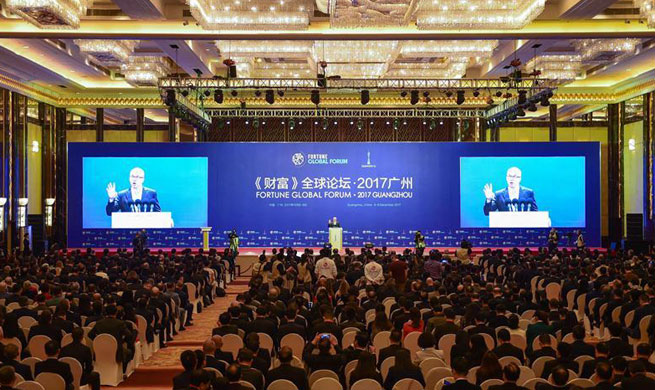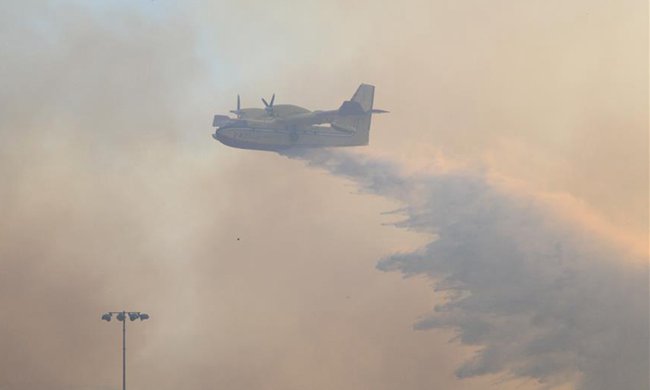by Muhammad Tahir
ISLAMABAD, Dec. 6 (Xinhua) -- U.S. Secretary of Defense James Mattis underscored the need in his visit to Pakistan on Monday "to find common grounds in order to create positive, consistent and long term relationship with Pakistan."
The U.S. embassy in Islamabad said Mattis, in his meetings with top Pakistani civilian and military leaders, also "underscored the importance of continuing and deepening cooperation for the common objective of eliminating terrorism from the region."
The remarks made by the U.S. defense chief could be seen reasonable than the traditional blame game, pressure tactics and threats to Pakistan as such approach will not work, analysts said here. The United States will have to understand Pakistan's current security environment when it still faces terrorism and violent extremism.
A group of Taliban suicide bombers killed nine people, including several students in the northwestern city of Peshawar on Friday just three days before the visit of Mattis.
The focus of his visit aimed to continue the dialogue about the South Asia strategy U.S. President Donald Trump announced in August.
Pakistani leaders have been critical of Trump's policy as they believe it mainly focuses on military solution to the Afghan conflict. Pakistan believes that there is no military solution to the Afghan conflict, and a political solution is imperative for lasting peace and stability.
The United States has been at odds with Pakistan as its military campaign has failed in Afghanistan and the Trump's administration has again opted for troops surge on the plea to weaken the Taliban. The Pakistani leaders have snubbed the U.S. leaders and insist Washington should not blame Islamabad for its humiliation in the war-shattered Afghanistan.
A U.S. watchdog said Taliban has expanded their control over the past six months and the insurgents now rule 54 districts of the country's total of 407 districts.
"As of August 2017, there were 54 districts under insurgent control or influence, an increase of nine districts over the last six months. Therefore, 13.3 percent of the country's total districts are now under insurgent control or influence, a more than two percentage points increase over the last six months, and a five-point increase from the same period in 2016," the Special Inspector General for Afghanistan Reconstruction (SIGAR) said.
Analysts in Pakistan are of the view that Pakistan and the United States have divergent views on Afghanistan as both have clash of interest there.
"The United States wants Pakistan blindly follow its policies. If Pakistan accepts this demand then it is ok for the United States but when Pakistan wants to protect its interests that lead to clash of interests," Pakistan's former Ambassador Ayaz Wazir said on Wednesday.
"The United States has been trying to weaken the Taliban so they could come to the negotiation table but it does not happen. The United States is now asking the Taliban to join the reconciliation process. My assessment is that the United States does not want solution to the Afghan problem. I think the United States is not seriously interested in bringing peace to Afghanistan as it intends to stay there for a long time," Wazir told Xinhua.
A senior defense expert Brig Ishaq Ahmed said that the United States will have to address the security concerns of Pakistan, which is still facing the threats of terrorism.
"Mattis and his president's demand seem somewhat unreasonable, looking at the internal terrorism graph of Pakistan. Suicide bombing, IEDs (improvised explosive devices) and Fidayeen (suicide attacks) attacks are still a challenge to Pak security forces," said Ahmed, director of the Intelligence and International Security Studies at The South Asian Strategic Stability Institute.
"With context to Afghanistan, where the United States has lost a longest war in recent history, Pakistan is blamed to be the single reason. The United States in specific and others in general must revise their thinking and change their policies accordingly," the expert told Xinhua on Wednesday.
He also said the Washington must change the approach of handling Afghan issue with muscle.

















